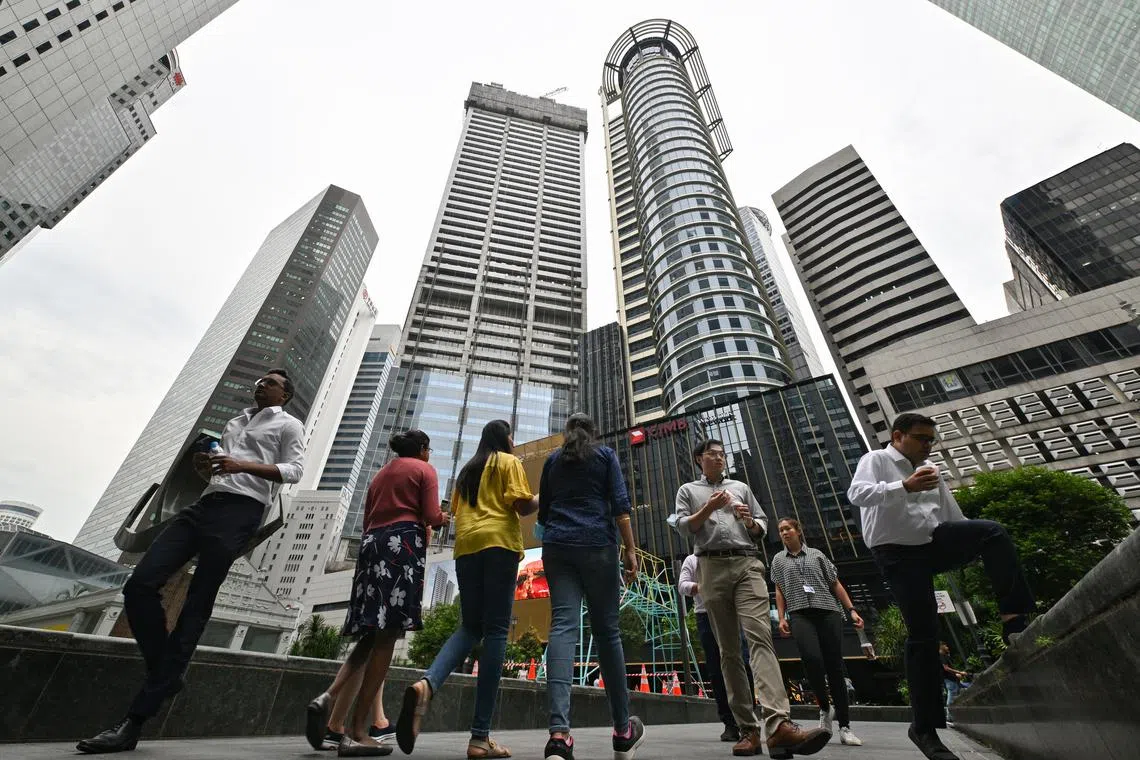Services 2030 strategy to create 100,000 jobs in Singapore’s modern services cluster
Sign up now: Get ST's newsletters delivered to your inbox

As part of the strategy, the Professional Services Industry Transformation Map 2025 was launched to strengthen Singapore as a leading business hub.
PHOTO: ST FILE
SINGAPORE - More than 100,000 additional jobs will be created in the modern services cluster within the decade, said Trade and Industry Minister Gan Kim Yong on Tuesday.
In the same period, Singapore aims to grow the value-add from the cluster by at least 50 per cent, he said during the debate on his ministry’s budget in Parliament.
These moves fall under the new Services 2030 strategy, one of the pillars of the Singapore Economy 2030 vision
As part of the strategy, the Professional Services Industry Transformation Map (ITM) 2025 was launched on Tuesday.
The professional services sector includes company headquarters and professional services firms providing consulting, legal and accounting services. It is one of three industries in the modern services cluster.
The other two are financial services and infocomm technology and media.
Mr Gan said the new ITM will play an important part in strengthening Singapore’s role as a leading business hub.
“Our professional services sector is well positioned to seize opportunities for business growth driven by digitalisation, sustainability, emerging markets and new customer segments in South-east Asia,” he said.
“The Government will work with stakeholders to help Singaporeans upskill and reskill, so that they, too, can tap opportunities and realise their career aspirations in this sector.”
Speaking at the debate, Minister of State for Trade and Industry Alvin Tan said the ITM will focus on three areas – strengthening Singapore’s appeal to regional and global headquarters; encouraging digital adoption and improving productivity; and redesigning jobs and upskilling the workforce.
“From 2020 to 2025, we expect our professional services sector to achieve value-added growth of 3 per cent to 4 per cent per annum to $27 billion, and create 3,800 additional PMET (professionals, managers, executives and technicians) jobs annually for locals,” said Mr Tan.
The new ITM is among 23 that support industry transformation.
Responding to MPs who asked how these ITMs have performed, Mr Gan said the ITM sectors have led the way in terms of economic growth and industry transformation, though the Covid-19 pandemic had affected progress.
Across the 23 ITMs from 2016 to 2021, their value-add in real terms grew by 2.9 per cent a year and productivity grew by 4 per cent a year, he said.
“These ITM sectors outperformed the economy as a whole, which saw value-added growth in real terms at 2.8 per cent per annum and productivity growth at 3.5 per cent per annum,” he said.
Despite the impact of Covid-19, there was a net creation of about 134,000 resident jobs from 2016 to 2021.
During that period, the financial services sector performed the best, achieving real value-added growth of 6.8 per cent a year over the same period, exceeding the real value-added growth target of 4.3 per cent set between 2016 and 2020.
But precision engineering did not perform as well due to the pandemic downturn, with more than 2,000 net PMET jobs created, short of the target of 3,000 jobs by 2020. Despite that, the sector exceeded its value-added target and achieved growth of 11.2 per cent a year.
Said Mr Gan: “While the Covid-19 pandemic has disrupted the progress of our ITMs, we have since embarked on a refresh of the ITM strategies, called the ITM 2025 refresh, to address emerging priorities, such as sustainability, and lessons from Covid-19, such as the need for greater economic resilience.
“We should allow some time for these strategies to take root before assessing progress of the ITM 2025 strategies.”


